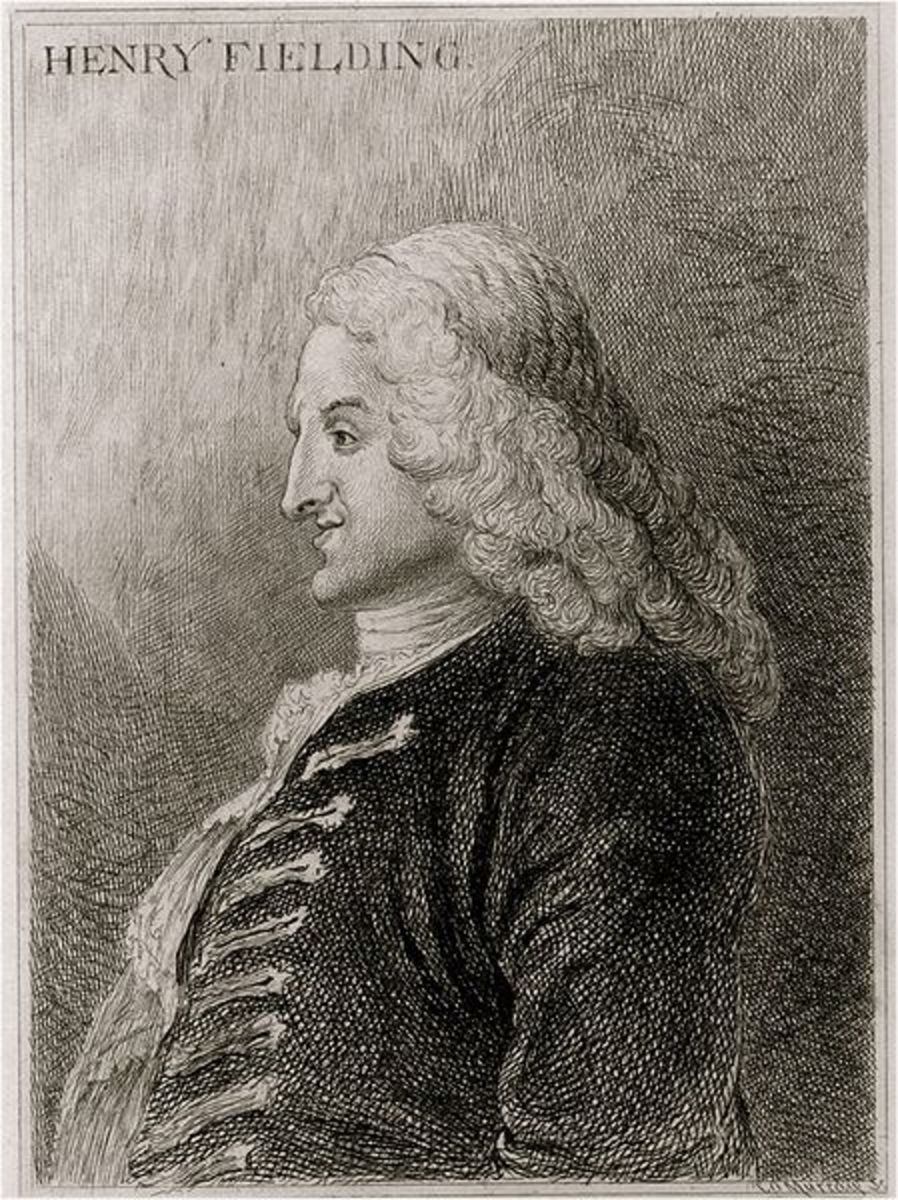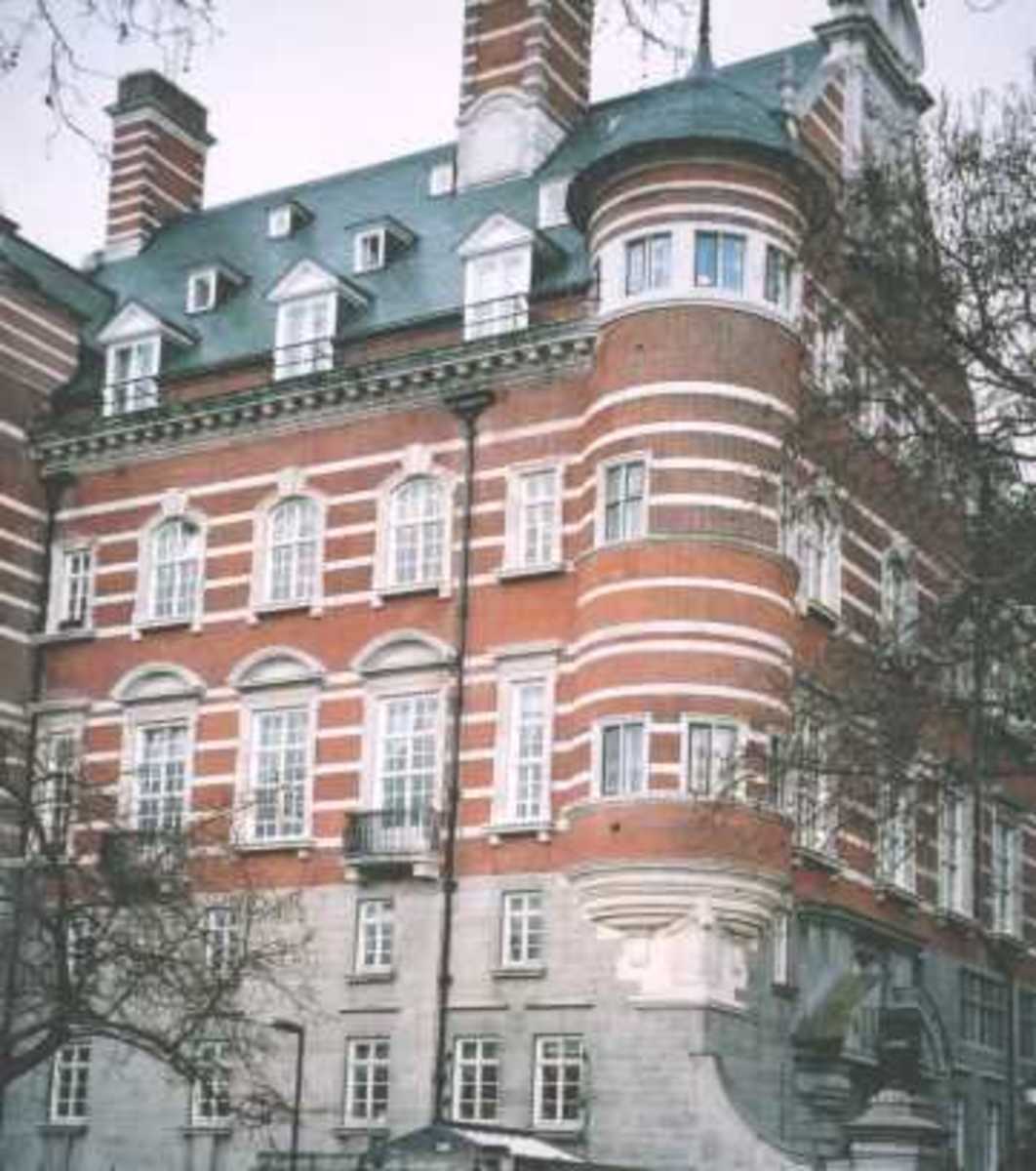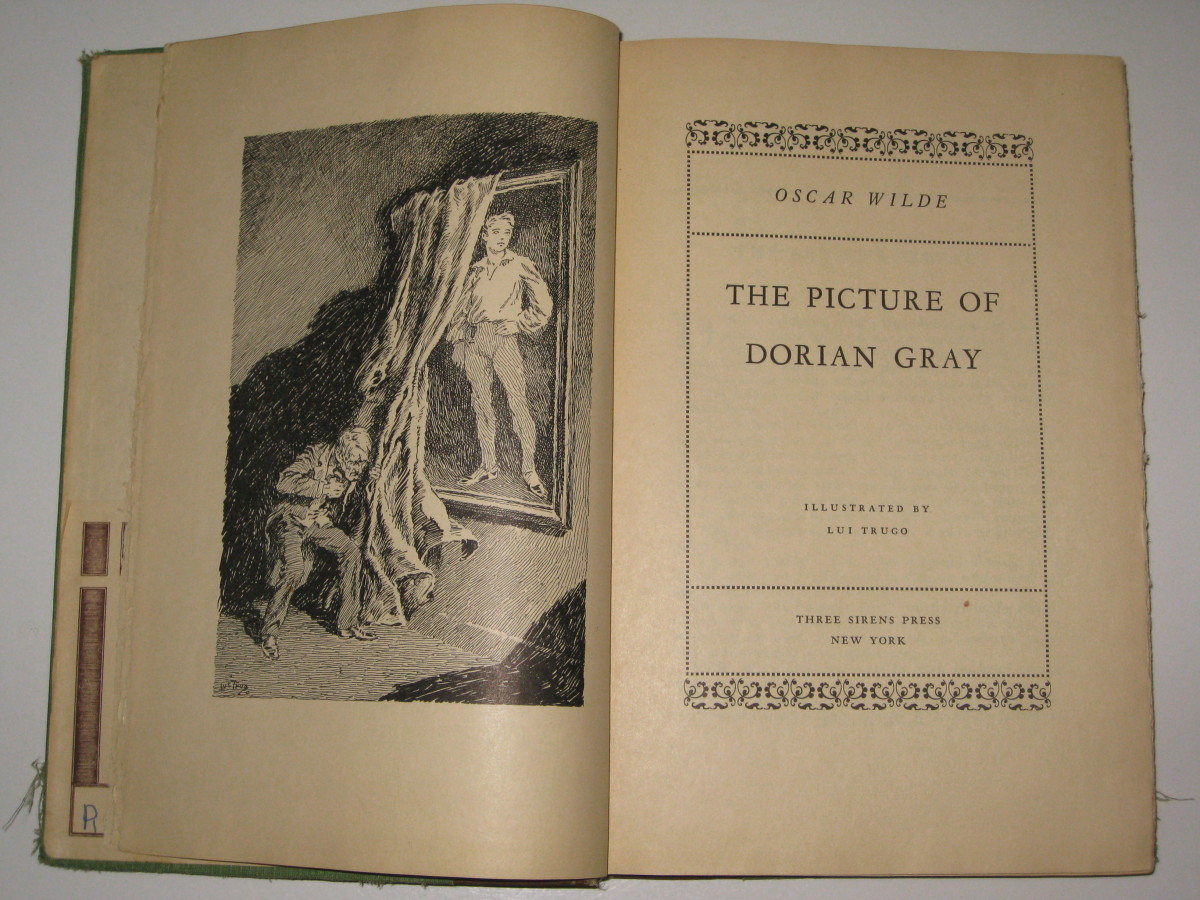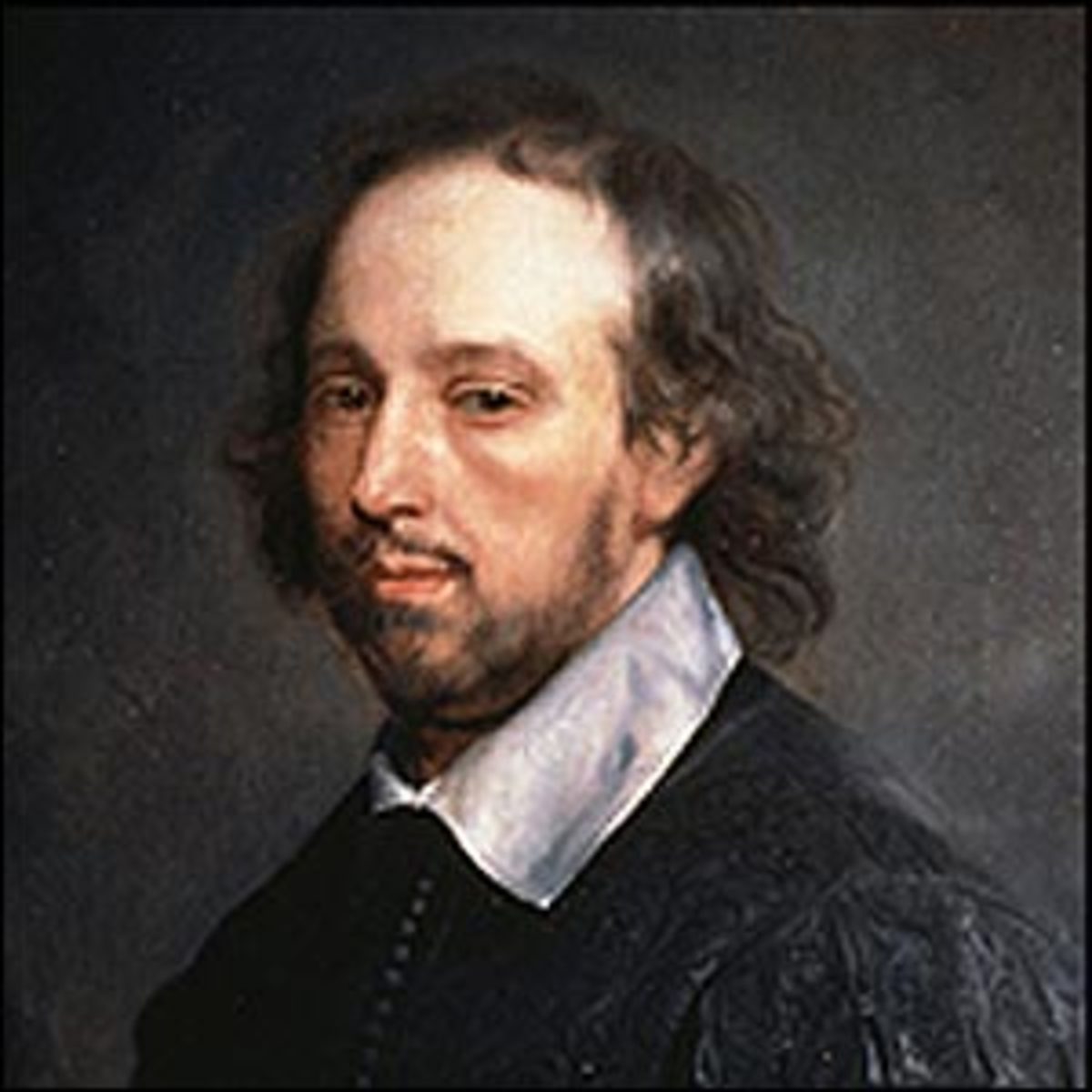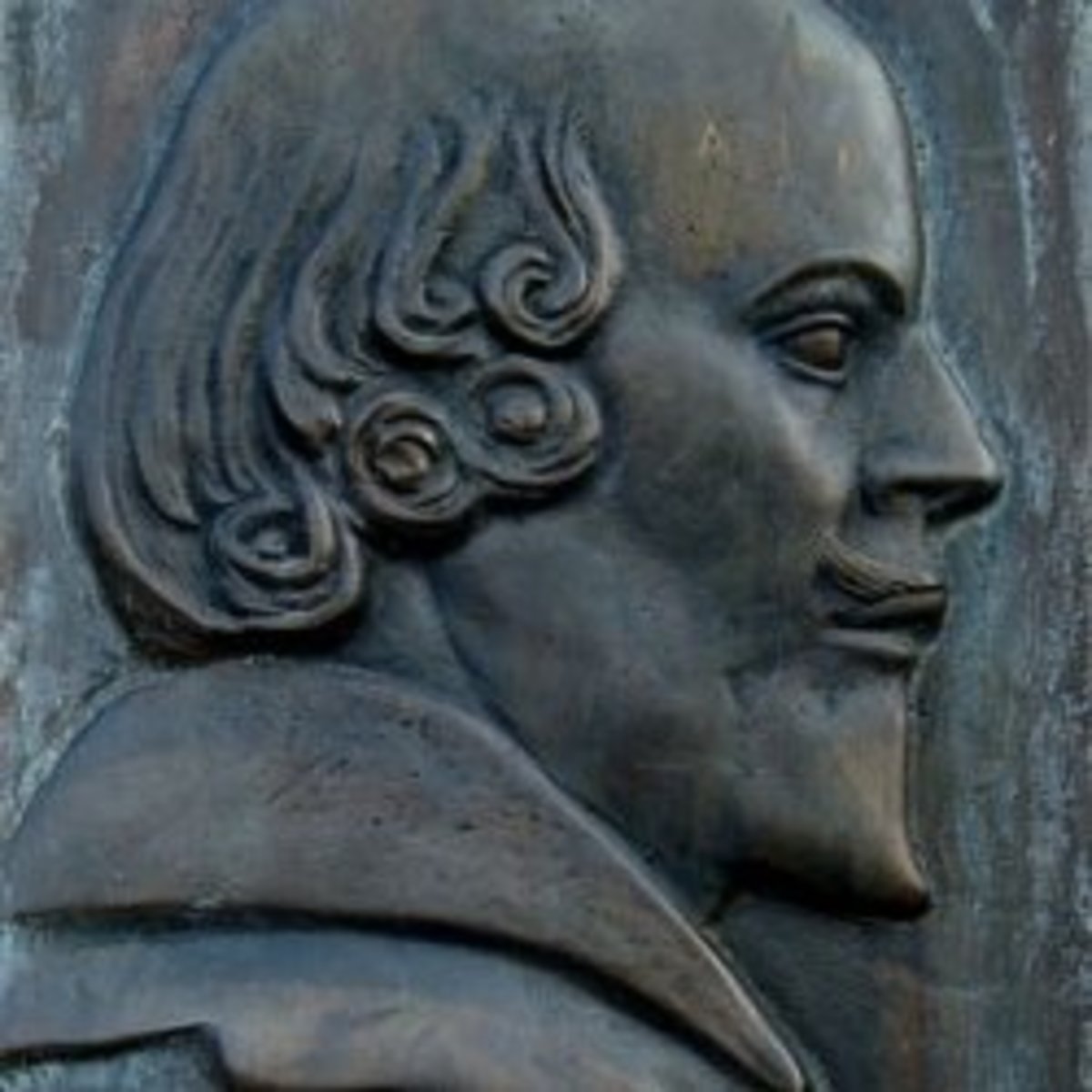Henry Fielding: Pioneering Novelist and Reforming Magistrate
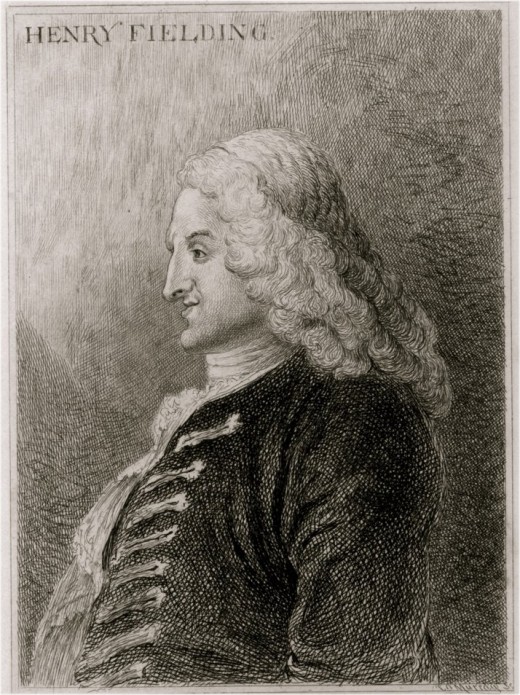
Henry Fielding: His Early Life
Henry Fielding was born on 22nd April 1707 at Sharpham Park in Somerset, this being the estate of his maternal grandfather. His father was an army general. His mother died when he was aged only 11.
He was educated at Eton, where he was not particularly well-behaved but came away with an excellent knowledge of Latin and Greek.
When aged 19 he attempted to run away with an heiress, and during the years before he eventually married (when aged 27) his life could be described as “rakish”, mixing with various dubious characters and thoroughly enjoying himself. His fortunes varied between poverty and good living, the latter funded by the writing of popular plays of a generally satirical nature – around 20 in total - and the patronage of a wealthy distant cousin.
His marriage was a happy one, spent mainly on a small country estate in north Dorset, although the Licensing Act of 1737, which introduced much stricter censorship of what could be performed in theatres, led to Fielding having to seek a new way of maintaining his lifestyle. He therefore sold his estate and began to study for a career in the law. He accomplished this aim in three years whereas it normally took twice that long.
He became a barrister in 1740 and began to practice the law, although his health started to give him problems and his career did not last long.
"Joseph Andrews"
He therefore turned to writing prose fiction, the result of which was “The Adventures of Joseph Andrews”, published in 1742. Fielding had been annoyed by “Pamela” a prose work published in 1740 by Samuel Richardson that had proved to be highly popular but which Fielding considered to be pretentious and over-sentimental. He first wrote an anonymous satire entitled “Shamela”, but followed this with the more extensive “Joseph Andrews”, which purported to be the adventures of Pamela’s brother.
“Joseph Andrews” can be regarded as the first comic novel in English. The author acknowledged on the title page his debt to Cervantes and “Don Quixote” for the loose plot structure, but his use of comic situations and presentation of well-rounded characters such as Parson Adams was entirely original to him. It is easy to see how Charles Dickens in turn made use of Fielding’s example when writing his “Pickwick Papers”.
Tragedy struck in 1743 when Henry Fielding’s wife Charlotte died and he became seriously depressed. He was helped through this time by Mary Daniel who had been the family’s maid but became a firm friend. They were married in 1747.
"Tom Jones" and "Amelia"
In 1748 Henry Fielding was appointed Justice of the Peace for Westminster, which served to broaden his already extensive knowledge of the London underworld of criminals and ne’er-do-wells. This experience provided much material for his greatest prose work, “The History of Tom Jones”, published in 1749.
At the heart of the story is the interplay of the three main characters – exuberant and sensuous Tom, cold and heartless Blifil, and the object of desire for both of them, Sophia. There are several other memorable characters including Squire Western, Mr Allworthy and Harriet Fitzpatrick.
Fielding’s gift was to base his characters on aspects of real people that he had come across in his travels and work as a magistrate, and also to create situations that interest the reader and make him/her want to continue turning the pages. There is a certain amount of coarseness in the book, and plain descriptions of sexual encounters, but none of this was at all false to contemporary society in Fielding’s time.
Dr Samuel Johnson was highly critical of “Tom Jones”, much preferring Henry Fielding’s third and final novel, “Amelia” (1751), although this is rarely read today. This is a domestic novel, set around the marriage of Amelia and Captain Booth, which is generally regarded as a pen-portrait of Fielding’s own blissful love affairs.
Most people today would regard the depictions of squalor in Newgate Jail, a pawnshop in Monmouth Street and a bailiff’s lock-up in Gray’s Inn Road as being of much greater interest.
The book was a huge success, with Fielding being paid a thousand guineas for the copyright and a second edition being called for on the first day of publication.
Henry Fielding the Magistrate
Fielding was a magistrate for only five years, but he made a considerable contribution during that time to improving the lot of his fellow Londoners. For one thing, he set an example in his own court by refusing to take the customary cut from fines imposed on people found guilty of minor offences, which tended to lead to innocent people being convicted in error.
He wrote a pamphlet that pointed to connections between crime, poverty and the consumption of cheap gin. This inspired his friend William Hogarth to produce his series of prints on “Gin Lane and Beer Alley”, with the net result being an Act of Parliament that restricted the sale of spirits.
Another pamphlet by Henry Fielding sought to tackle the causes of crime by proposing that hostels, workshops and infirmaries should be established to help alleviate overcrowding and unemployment. However, these suggestions were never acted upon.

His Final Work and Death
In 1753 the Prime Minister, Henry Pelham, asked Henry Fielding to suggest a plan for breaking up robber gangs that were then terrorizing London. Fielding was not at well at the time, but he delayed a visit to Bath, designed as a health cure, to undertake the work, which had an entirely successful outcome. With winter approaching he decided to go to Portugal instead of Bath, but did not live long enough to return.
However, his final piece of literary work was his “Journal of a Voyage to Lisbon” that he wrote when on board ship. This piece is notable for its humour and freshness as he notes the idiosyncrasies of the ship’s crew and fellow passengers and bemoans the incompetence of bureaucrats and the insolence of Customs officers.
Henry Fielding died in Lisbon on 8th October 1754, at the age of 47.

